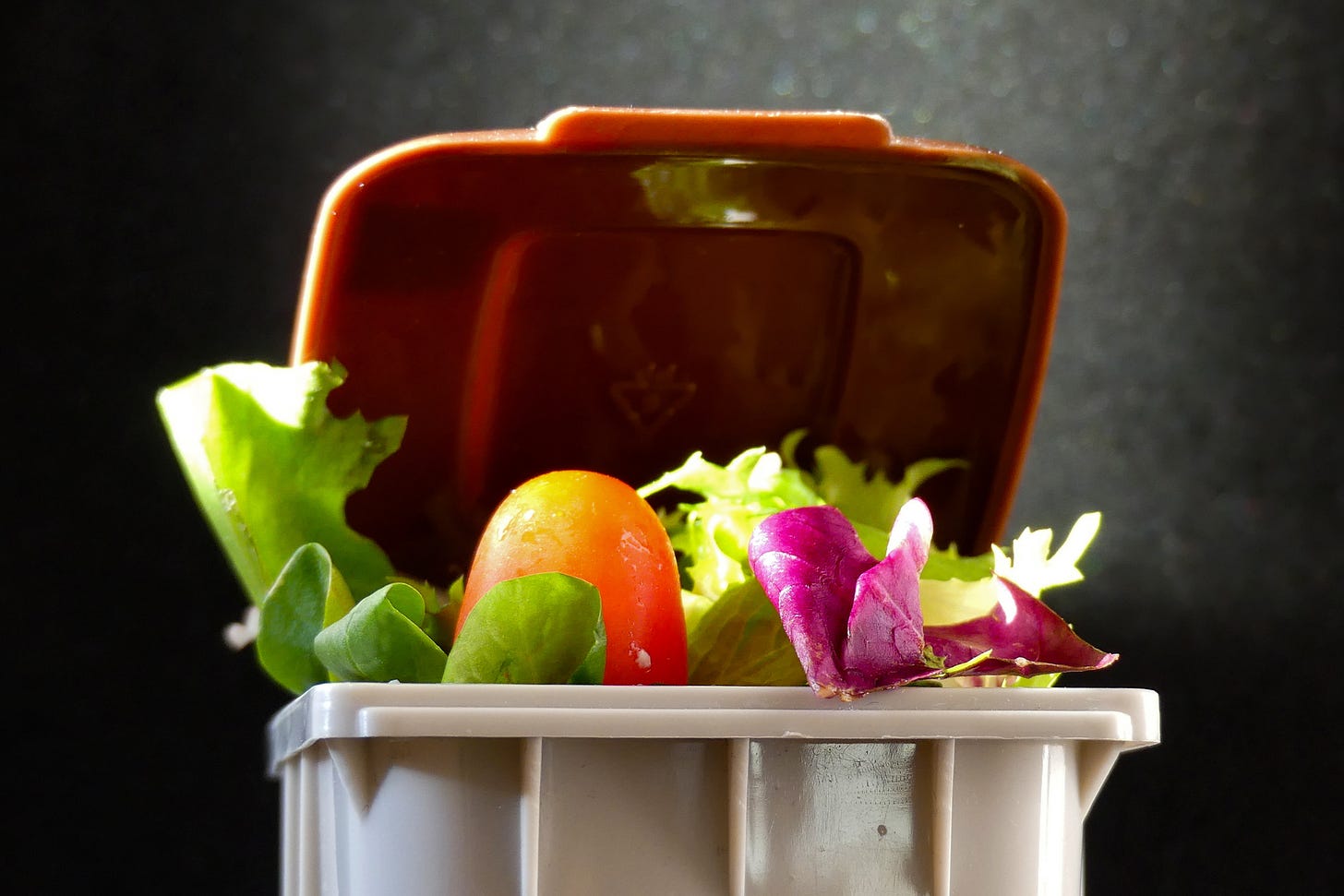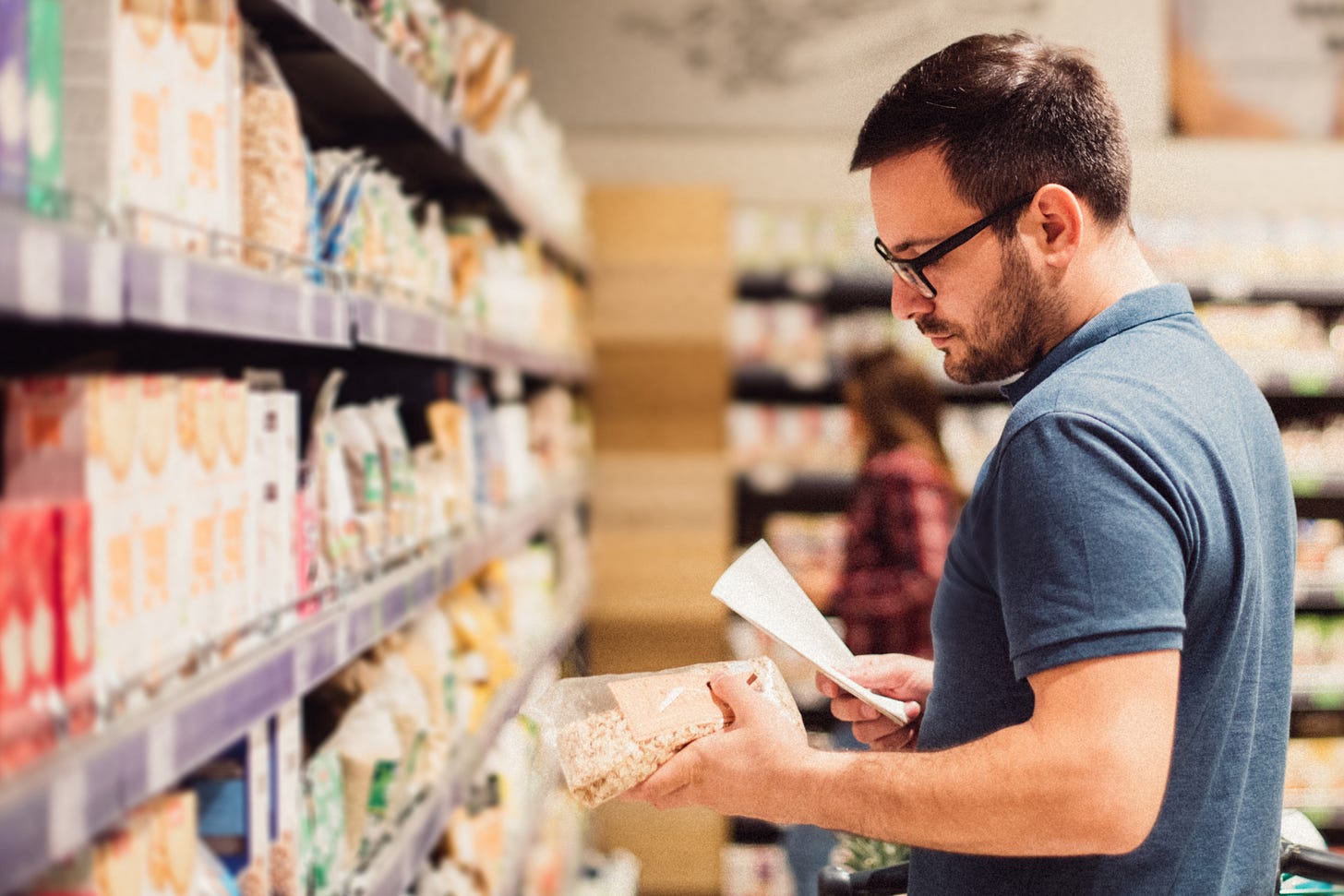Save the Planet. Don't Waste Food.
Food waste is a huge contributor to climate change - find out why and what you can do this holiday and beyond
So much food is eaten and wasted this time of year I wanted to spend a few minutes on the issue of food waste. According to Feeding America, 108 BILLION pounds of food is wasted in the United States each year. That equals 130 BILLION meals thrown away with $408 billion wasted. Nearly 40% of all food in the U.S. is wasted.
The waste comes from all parts of the food chain, including food thrown out in stores, restaurants, and our homes. It also covers crops left in fields to rot and problems with the manufacturing and transporting of food products.
39% of all food waste - about 42 BILLION pounds - comes from our homes. So even if you can’t tackle food waste on the farm or in stores, there’s a lot you can do at home.
I spoke at TED’S TEDActive event about this topic several years ago.
What You Can Do to Help Lessen Waste in Your Kitchen
There are simple things you can do to waste less food, including:
Create weekly menus. Plan meals in advance and use the same ingredients in several dishes.
Write shopping lists. Buy only what you need. That two-for-one bargain isn’t a bargain if you throw most of it away.
Use smaller plates and serving spoons. Let your family and friends return for seconds if they’re still hungry.
Use your freezer. If you don’t like eating the same meal twice, freeze leftovers for another time. You’ll thank yourself after a long day at work.
Get creative with leftovers. Find other recipes. Have leftover chicken? Try chicken salad, chicken stroganoff, chicken soup, and chicken stock.
Share. Supply your guests with compostable containers to take home leftovers.
Save scraps. The ends of vegetables and onion peels can all be put into a pot and simmered to make vegetable stock.
Expiration dates. There’s a lot of confusion over expiration dates. Most food is still good after the date stamped on it. The smell test is still the best way to know if food is still good. The USDA states that shelf-stable food tends to be good indefinitely. It might taste stale after a while, but it won’t make you sick. Same with food in your freezer. Find out more.
Compost. If you can’t use something, please do not put it in the trash. Find a composting facility near you.
Why You Should Care About Food Waste
Here are four critical reasons why you should care about food waste:
Save money. If you waste less food, you’ll save yourself money. It’s as simple as that.
Feed Others. If you waste less, there can be more to feed other families. As I often say, if you have leftover food, please take it to a local community fridge. The Freedge Organization has put together a map of fridges around the world.
Conserve resources. When you waste food, you’re also wasting gas and other resources to produce and transport that food.
Climate change. Climate change is SERIOUS. I was shocked when I learned that food thrown in the trash ends up in landfills, decomposing and breaking down into methane. Methane is the most potent greenhouse gas, worse than carbon dioxide.
According to the U.S. EPA (Environmental Protection Agency), food is the top material thrown into municipal landfills. These landfills are the third-largest source of human-related methane emissions in the U.S., so stop throwing your food away!
Please start composting if you have spoiled food or food you can’t eat or share. You can do it yourself or find a place that accepts food for composting. The EPA has created an Excess Food Opportunities Map - use it to find a composting facility in your area.
So enjoy the rest of your holidays, but please do your best to minimize your waste all year round. It’s good for you and the world. And it’ll help us keep a planet for your grandchildren to live on.
Yes, things are that serious.
Happy Holidays!
If you'd like to stay in touch, please do!
Please subscribe now if you aren't subscribed to Next Draft with Diane Hatz. (free and paid)
If you're Facebook-friendly, please follow and like my Facebook author page!
I have a Medium account if you’re a member. Right now I tend to be cross-publishing, but I’ll eventually put some original content here in Substack and on Medium. Please follow me there if you’re a Medium subscriber.
Also Twitter - @dianehatz and Instagram - @wholehealthygroup
Next Draft is broken up into different sections to cover several topics, including the main Next Draft category (monthly zine mainly), My Books/Fiction, Indie Publishing & Promotion, Self-Care/Spirit, and a couple others. If you’d like to receive one or a couple of these topics but not all, please visit my About page for instructions on selecting specific areas. (Scroll down the page.)
(Please note: The holidays have me a bit off my articles on indie writing and publishing, but rest assured, I’ll be back with writing topics soon!)








I use a compost service and it’s really changed how I eat and what I buy. There’s a bunch of industrially compostable packaging so if you find a sustainable business, you can have the products you want without producing the associated waste.
Meal planning is also important since you can spend a ton on food that won’t get entirely eaten, which can turn into a financial and food waste cycle in itself.
Nice, practical tips to get started. Doing it imperfectly is still better than not at all.
Thank you for this important reminder--especially this time of year!